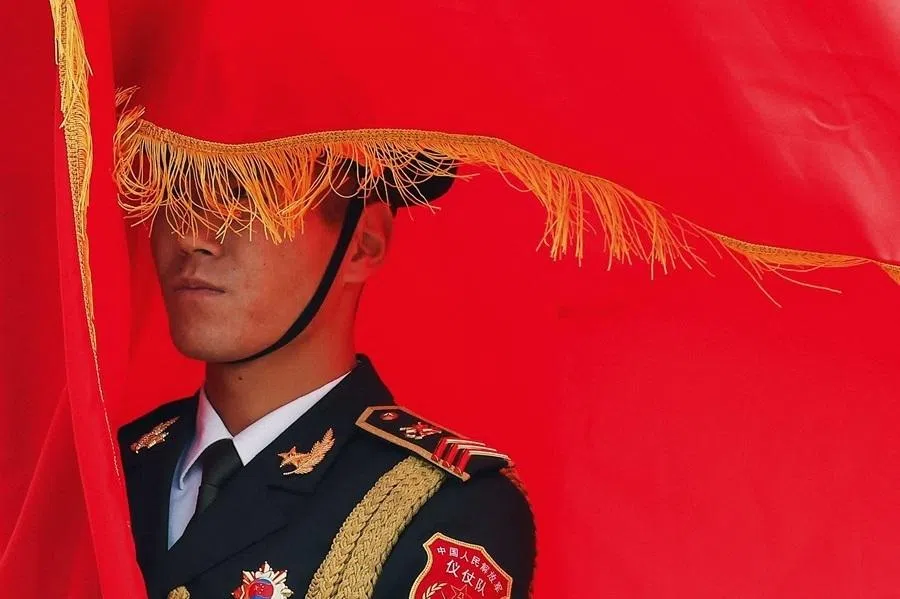[Big read] Malaysian Prime Minister Anwar Ibrahim: Maintaining good relations with both China and the US
With Malaysian Prime Minister Anwar Ibrahim in the role as head of government for more than a year, his stance on foreign policy and relations with China and other countries is becoming clearer. Anwar's role on the international stage may gain even greater prominence with Malaysia's chairmanship of ASEAN coming up next year. Meanwhile, he will also need to contend with garnering domestic support, especially among the Malay community. Lianhe Zaobao journalist So Choon Siang speaks with academics to find out more.

More than a year after taking office as Malaysia's prime minister, Anwar Ibrahim has repeatedly stressed that Malaysia will not choose sides amid China-US competition and will continue to uphold its non-alignment stance, slamming the US and other Western countries for idly watching the humanitarian crisis in Gaza intensify.
He also believes that the Association of Southeast Asian Nations (ASEAN) has the duty to encourage major powers in the Asia-Pacific region to behave in a manner conducive to cooperation and economic integration.
Interviewed academics pointed out that if Anwar wants to break new ground in Malaysia's diplomacy, he must first be able to garner the powers' respect for the ASEAN model and ensure that the relationship between major powers and countries in the region promotes peace and stability.
When Malaysia assumes ASEAN's rotating chairmanship in 2025, Anwar must also consider how he can play a role in guiding the bloc to deal with international affairs. However, the extent to which Malaysia can exert its influence through ASEAN largely depends on whether Anwar is able to maintain stable domestic politics.
Malaysia's non-alignment policy and neutrality
After Malaysia gained independence in 1957, Tunku Abdul Rahman, the first prime minister of Malaysia, adopted a pro-Western foreign policy due to the Cold War and the Communist Party of Malaya's armed revolt. But Tun Abdul Razak, Malaysia's second prime minister, changed this practice of choosing sides after taking office in 1970.
A year after taking office as prime minister, Tun Razak advanced the Zone of Peace, Freedom and Neutrality in Southeast Asia and also led Malaysia to join the Non-Aligned Movement. The country established diplomatic relations with China in 1974 and was the first Southeast Asian country to do so.
... the focus of Anwar's foreign policy is threefold: to continue its policy of non-alignment and neutrality while maintaining good relations with both China and the US, strengthening bilateral ties in Southeast Asia, and improving relations with the Muslim world. - David Han, Research Fellow, Malaysia Programme, RSIS, NTU
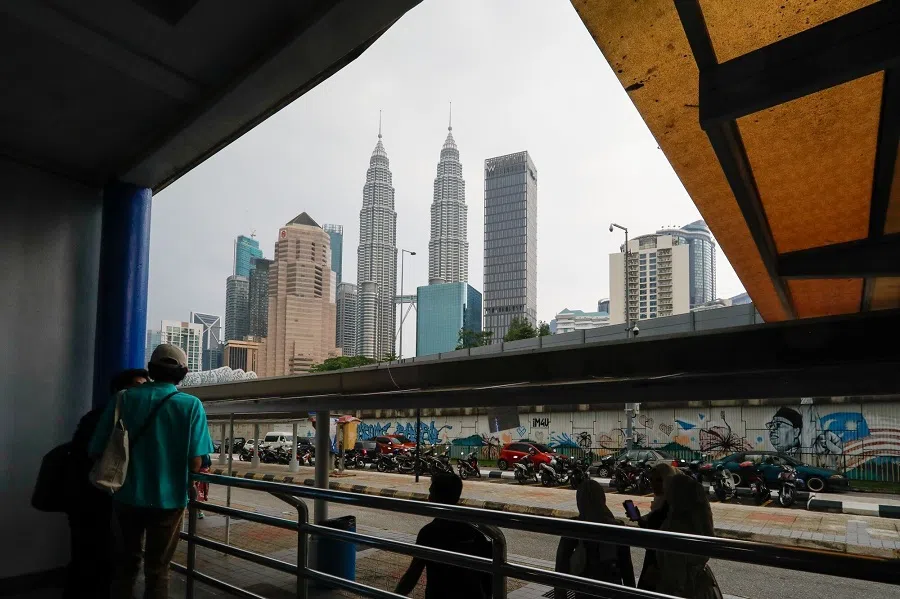
After Tun Razak laid the foundation for Malaysia's foreign policy of non-alignment, neutrality and independence for the following decades, Malaysia's third prime minister Tun Hussein Onn, who ruled from 1976 to 1981, maintained the same stance.
Although Malaysia's fourth prime minister Mahathir Mohamad, who first took office in 1981 and ruled for 22 years, had occasionally hit out at the West, he is still considered to have maintained Tun Razak's foreign policy of non-alignment and neutrality.
After Malaysia's fifth prime minister Abdullah Ahmad Badawi took office in October 2003, Malaysia and China reached an agreement to enhance cooperation in strategic areas the following year. Malaysia's sixth prime minister Najib Razak established a comprehensive strategic partnership with China in 2013 and a comprehensive partnership with the US the following year, striking a balance between China and the US.
After Najib lost the elections in May 2018, the subsequent prime ministers - Mahathir, Muhyiddin Yassin and Ismail Sabri Yaakob - were each in office for less than two years. During this period, Malaysia came under the spotlight for its frequent regime changes, instead of its diplomatic achievements.
"... Anwar's stance of pursuing robust relations with both China and the US is to allow Malaysia to gain benefits from both powers that would be in Malaysia's national interests, while avoiding the risk of becoming beholden to either China or the US." - Han

After Anwar took office in November 2022, his pro-Western image prior to taking office led some academics to worry that he may lead Malaysia closer to the US and affect the country's relations with China. However, this did not happen.
David Han, an expert on Malaysia's foreign policy, told Lianhe Zaobao that the focus of Anwar's foreign policy is threefold: to continue its policy of non-alignment and neutrality while maintaining good relations with both China and the US, strengthening bilateral ties in Southeast Asia, and improving relations with the Muslim world.
A research fellow with the Malaysia Programme at Nanyang Technological University (NTU)'s S. Rajaratnam School of International Studies (RSIS), Han said, "I think Anwar's foreign policy towards China and the US has been to maintain Malaysia's longstanding posture of non-alignment and neutrality when it comes to relations with all powers. Thus, Malaysia has been seeking to cultivate friendly relations with all powers without becoming an enemy of any powers.
"It is through such non-alignment and neutrality that avoid choosing sides that Malaysia can exercise an independent foreign policy that is not beholden to any powers. From this logic then, Anwar's stance of pursuing robust relations with both China and the US is to allow Malaysia to gain benefits from both powers that would be in Malaysia's national interests, while avoiding the risk of becoming beholden to either China or the US."
Slamming Western countries' China policy
Anwar also took the opportunity to criticise the China policy of Western countries during his recent trip to Australia. At a joint press conference with Australian Prime Minister Anthony Albanese on 4 March, Anwar stressed that Malaysia is an independent nation and does not want to be dictated by any force. He said that if the US and Australia "have problems with China", they "should not preclude us from being friendly to one of our important neighbours, precisely China".
"... recently there is a report showing that the tension between Beijing and Washington over access to technology has prompted many companies to open factories in Southeast Asia, and Malaysia stands to gain huge benefits from this." - Mohd Faizal bin Musa, Visiting Fellow, Malaysia Studies Programme, ISEAS

Anwar added that Malaysia must maintain good relations with China, its largest trading partner. Last year, China continued to be Malaysia's largest trading partner for 15 consecutive years, with bilateral trade reaching RM450.84 billion (approximately US$95 billion) in 2023.
Mohd Faizal bin Musa, an academic who has been studying Malaysia's diplomacy for a long time, told Lianhe Zaobao that historical and political factors contribute to Malaysia's strong relationship with China. As this year also marks the 50th anniversary of the establishment of diplomatic relations between Malaysia and China, both countries are expected to further deepen bilateral ties. This could also be a new diplomatic direction that Anwar could open up for Malaysia.
A visiting fellow with the Malaysia Studies Programme at the ISEAS - Yusof Ishak Institute (ISEAS), Mohd Faizal said, "With China rising as an economic superpower, I trust Malaysia will not take sides at all and continue to make good engagements with both sides. In fact, recently there is a report showing that the tension between Beijing and Washington over access to technology has prompted many companies to open factories in Southeast Asia, and Malaysia stands to gain huge benefits from this."
Wan Rohila Ganti binti Wan Abdul Ghapar, senior lecturer of the Faculty of Law and International Relations at Universiti Sultan Zainal Abidin in Terengganu, pointed out to Lianhe Zaobao that Malaysia is one of the founders of the Non-Aligned Movement, which emerged in the backdrop of the Cold War, and clearly stands on neutrality and not siding any superpowers.
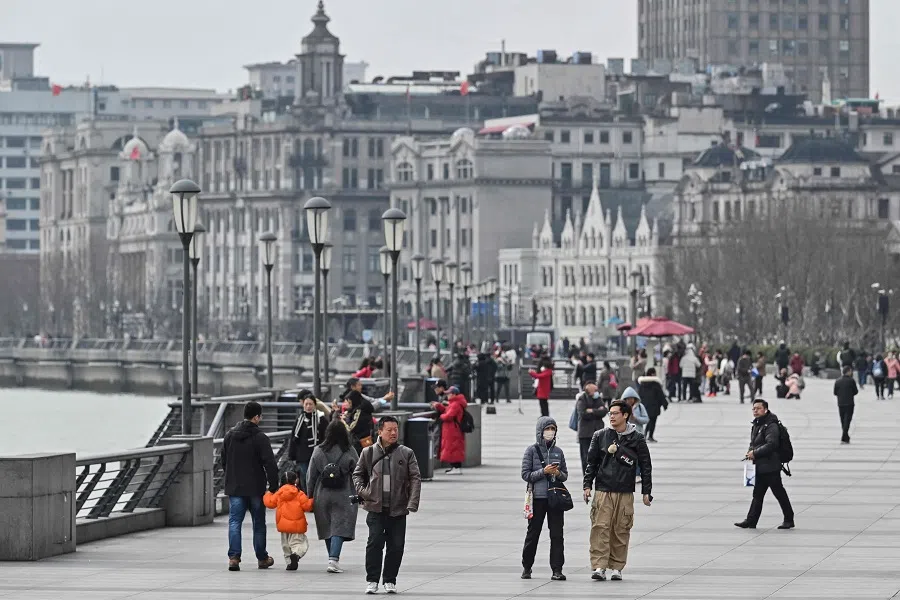
She said that both China and the US are important to Malaysia's trade and security, and that it would not be wise for Anwar to choose only one of them; only by being neutral between the two can the country enjoy the biggest benefit.
She thinks that not choosing sides should not only apply to the complicated relationship with China and the US, but also when handling Malaysia's relationship with other Asia-Pacific countries.
Wan Rohila Ganti believes that if Anwar wants to carve out a new diplomatic landscape, his main concern would be to urge these regional powers to play an international brotherhood role to strengthen regional peace and security. "Playing with superpowers, a small country like Malaysia requires the art of diplomacy and negotiation," she noted.
Balancing competition and promoting regional integration
Malaysia is one of the founding countries of ASEAN and also a very active member of the association. When Malaysia assumes ASEAN's rotating chairmanship next year, all eyes will be on how it will balance competition among major powers in the region and promote regional integration.
During his speech at the Australian National University on 7 March, Anwar indicated that as ASEAN chair in 2025, Malaysia will attempt to breathe new life into ASEAN-led forums as well as to achieve something of consequence.
Anwar stated that Malaysia would attempt to breathe new life into ASEAN-led forums such as the East Asia Summit, the ASEAN Regional Forum and the ADMM Plus, adding that "without [ASEAN], the region will be principally dictated by the calculations and designs of the major powers, unfettered by the need to account for a more diverse range of interests and viewpoints."
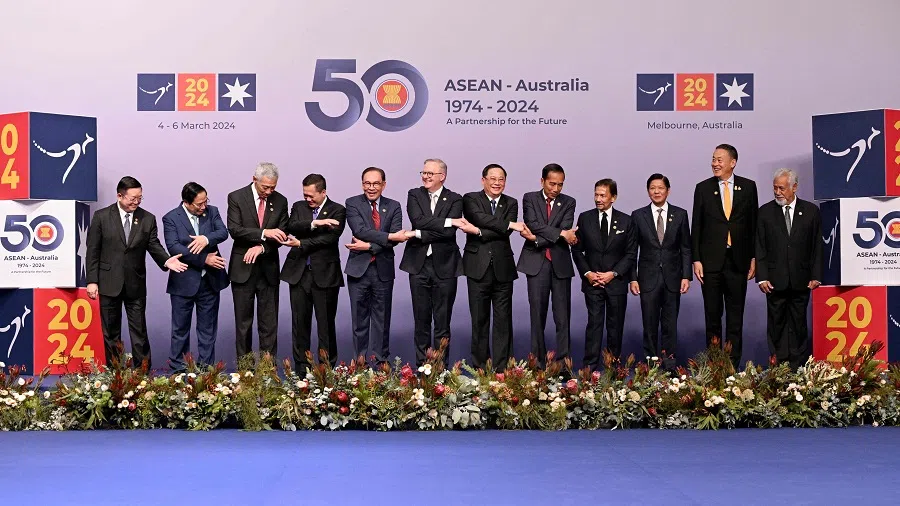
Han opined that ASEAN has always been a cornerstone of Malaysia's foreign policy, and its longstanding position has been to work with other ASEAN member states to engage all powers through constructive diplomacy via ASEAN to manage relevant issues such as the South China Sea disputes and Myanmar crisis.
He added, "As Malaysia takes on the ASEAN chairmanship in 2025, this may enhance Malaysia's voice in promoting better cooperation between ASEAN member states and China and the US in coping with pertinent challenges such as the South China Sea disputes."
In his speech during the 43rd ASEAN Summit plenary session on 5 September 2023, Anwar stated, "ASEAN has a unique opportunity through its plus platforms to bring together the competing parties to remind them of the need to prioritise dialogue and cooperation, to promote healthy competition, and to ensure what they bring into their relations with ASEAN would help maintain peace, stability and prosperity in this region."
... both the US and China would inevitably put pressure on the country chairing ASEAN, in particular Malaysia when it assumes chairmanship, on the South China Sea issue. - Wan Rohila Ganti binti Wan Abdul Ghapar, Senior Lecturer, Faculty of Law and International Relations, Universiti Sultan Zainal Abidin
Han analysed, "Given Malaysia's longstanding stance of non-alignment and neutrality, Malaysia does not want the Southeast Asian region to be torn apart by major power rivalry. Also, by enhancing regional cooperation and economic integration, this would promote international trade and economic cooperation in the region, both of which are important for Malaysia's economic growth."
Mohd Faizal concurred that neutrality is the "best position" that ASEAN can take, adding, "In the heightening and possibility of any conflict between US and China, our region will be in the centre of unwanted situations. Thus, it is better to be friends with all parties and play the role of mediator."
Besides China-US competition, ASEAN currently also faces thorny issues such as the South China Sea dispute and the Myanmar crisis.
Wan Rohila Ganti pointed out that both the US and China would inevitably put pressure on the country chairing ASEAN, in particular Malaysia when it assumes chairmanship, on the South China Sea issue. She added that this is a challenge that Malaysia's leader would have to face and that "only a wise leader" would be able to handle all of this.
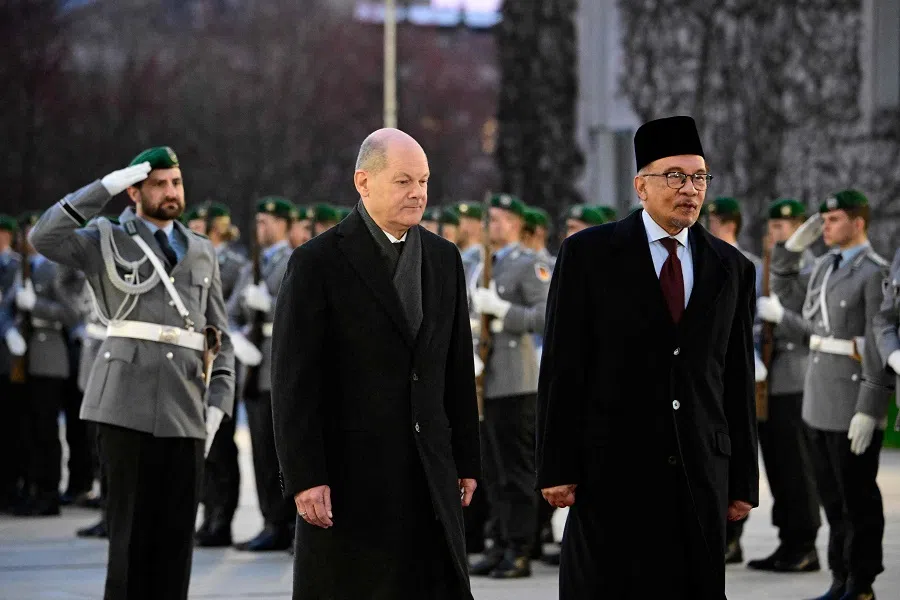
On the Myanmar issue, though ASEAN adheres to the principle of non-interference in domestic politics and to seeking common grounds in spite of differences, Wan Rohila Ganti believes that Malaysia could try to push ASEAN to step up in handling this issue.
The continued political unrest in Myanmar has led to many people fleeing to neighbouring countries. According to official estimates, around 200,000 refugees from Myanmar have escaped to Malaysia to date.
Revising ASEAN's principle of non-interference
The core principle of non-interference was enshrined during the establishment of ASEAN. However, Anwar has openly stated a desire to take steps to revise this principle, so as to deal with regional issues more flexibly.
In an interview with Indonesia's Tempo on 9 May last year, Anwar reasoned that ASEAN's non-intervention principle can be seen as a barrier to solving the crisis in conflict-stricken Myanmar. He believes that the Southeast Asian bloc needs to adjust its approach as the impact of the conflict affects countries in the region.
In a videotaped remark he posted on X (formerly Twitter), Anwar said, "We will have to then have a new vision that would give us some flexibility in order to navigate and manoeuvre the way forward."
Anwar stated that he still supports the principle of non-interference and prefers adopting a firmer approach against the Myanmar military junta, but he does not advocate entirely cutting off communication with them.
Speaking out for Palestine
Since the outbreak of conflict between Israel and Hamas in October 2023, the Anwar government has been wholly pro-Palestine. This has stirred dissatisfaction from Western countries, but Anwar has remained firm.
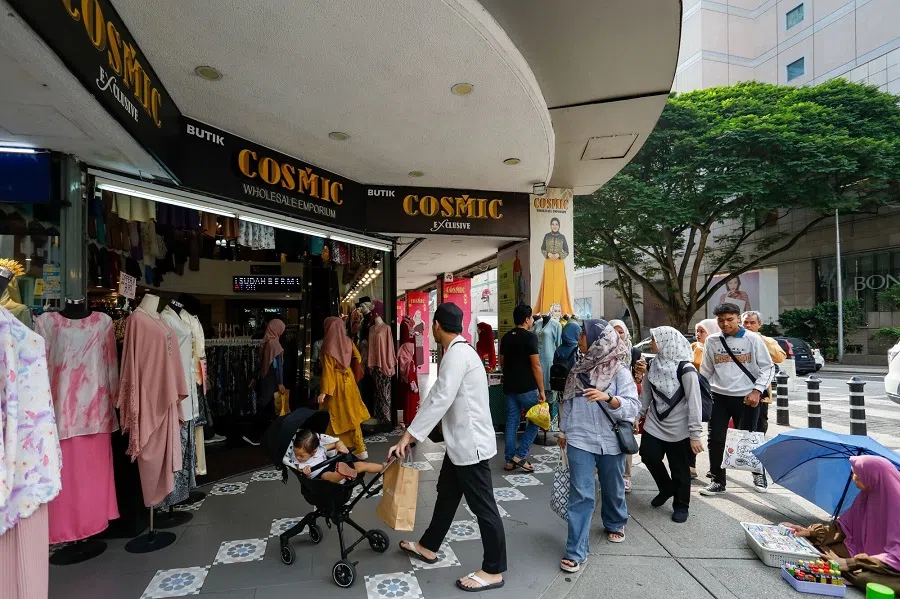
During a joint press conference on 11 March in Berlin following a meeting with German Chancellor Olaf Scholz, Anwar stressed that Malaysia has political ties but not military connections with Hamas. Malaysia's ties with Hamas can play a role when the need arises, such as in resolving the hostage issue.
He emphasised that each country should understand the fundamental cause of the problem that triggered the conflict, which is the decades of "atrocities, plunder and dispossession of Palestinians" by Israel.
Anwar stressed, "What I reject strongly is this narrative, this obsession, as if the entire problem begins and ends with the 7th of October [attack by Hamas last year]."
Wan Rohila Ganti opined that Malaysia's championing of Palestine has long been its foreign policy since the conflict erupted, adding, "Prime ministers have changed, but the consistency over this issue remains."
"Since Malaysia's foreign policy is highly consistent and institutionalised, his [Anwar's] approach to foreign affairs will be like that of his predecessors but with his characteristic energy and self-confidence." - Han
Revitalising Malaysia's influence in the Islamic world
She pointed out that Anwar has continued to support Palestine and humanitarian issues, which is why he is able to be more vocal and eloquent on an international stage. She added that Anwar wants to be seen as an emerging Muslim leader as Muslim communities start to lose hope in Arab countries and other Muslim leaders, in order to win back the influence in the Islamic world that Malaysia previously held.
Wan Rohila Ganti believes that Anwar's actions could also be seen as seeking to regain the Malay-Muslim support that he is slowly losing, as the Malay community would generally applaud Anwar for speaking out for the Palestinians.
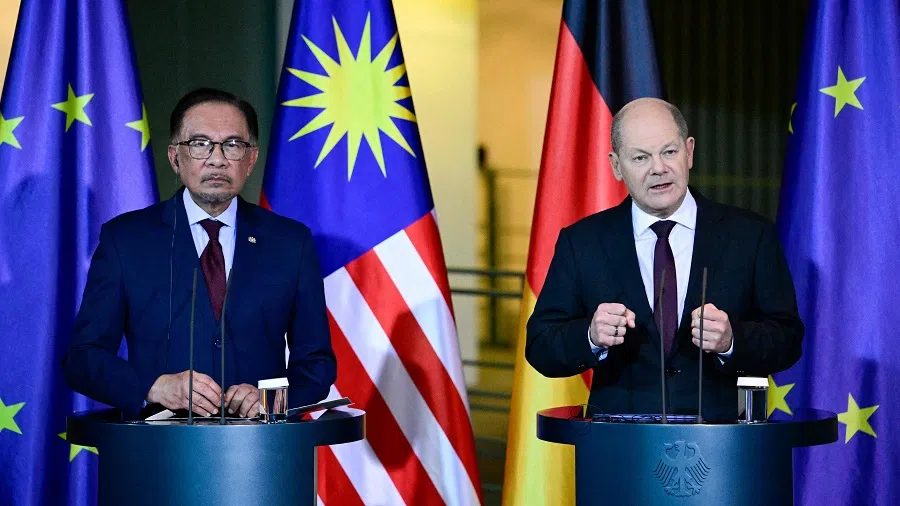
Since Anwar was sworn in as prime minister, he has been constantly criticised by opponents for not winning over the majority of support from the Malays. Recent incidents such as enforcing that all school canteens remain open during Ramadan as well as the sale of socks with the word "Allah" printed on them at a supermarket, among others, have further impacted the Anwar government's support from the Muslims - which was not strong to begin with.
Han stated that Anwar's posturing on Palestine is largely a strategy to help him win over Malay voters, and this is also consistent with and based on Malaysia's longstanding pro-Palestinian position.
He added, "A show of support for the Palestinian cause in the ongoing conflict in Gaza is likely to enhance the legitimacy of the Anwar government among Malay-Muslim constituents in Malaysia."
As for the Anwar administration's diplomatic approach going forward, Han felt that the unity government's foreign policy will be largely shaped by Anwar himself. He said, "Since Malaysia's foreign policy is highly consistent and institutionalised, his approach to foreign affairs will be like that of his predecessors but with his characteristic energy and self-confidence."
Han opined that Anwar aspires to restore Malaysia's reputation for advocacy on international issues and proactive diplomacy in regional affairs. However, he added, "Anwar needs domestic political stability to score in foreign policy."
In other words, once there are signs of political strife in Malaysia - as was the case from 2020 to 2022 - no matter how ambitious Anwar is when it comes to diplomacy, he would not be able to follow through with implementation if he is bogged down by domestic concerns.
This article was first published in Lianhe Zaobao as "不在中美间选边 支持巴勒斯坦 马国首相安华力争国际角色须过"安内"关".



![[Big read] When the Arctic opens, what happens to Singapore?](https://cassette.sphdigital.com.sg/image/thinkchina/da65edebca34645c711c55e83e9877109b3c53847ebb1305573974651df1d13a)

